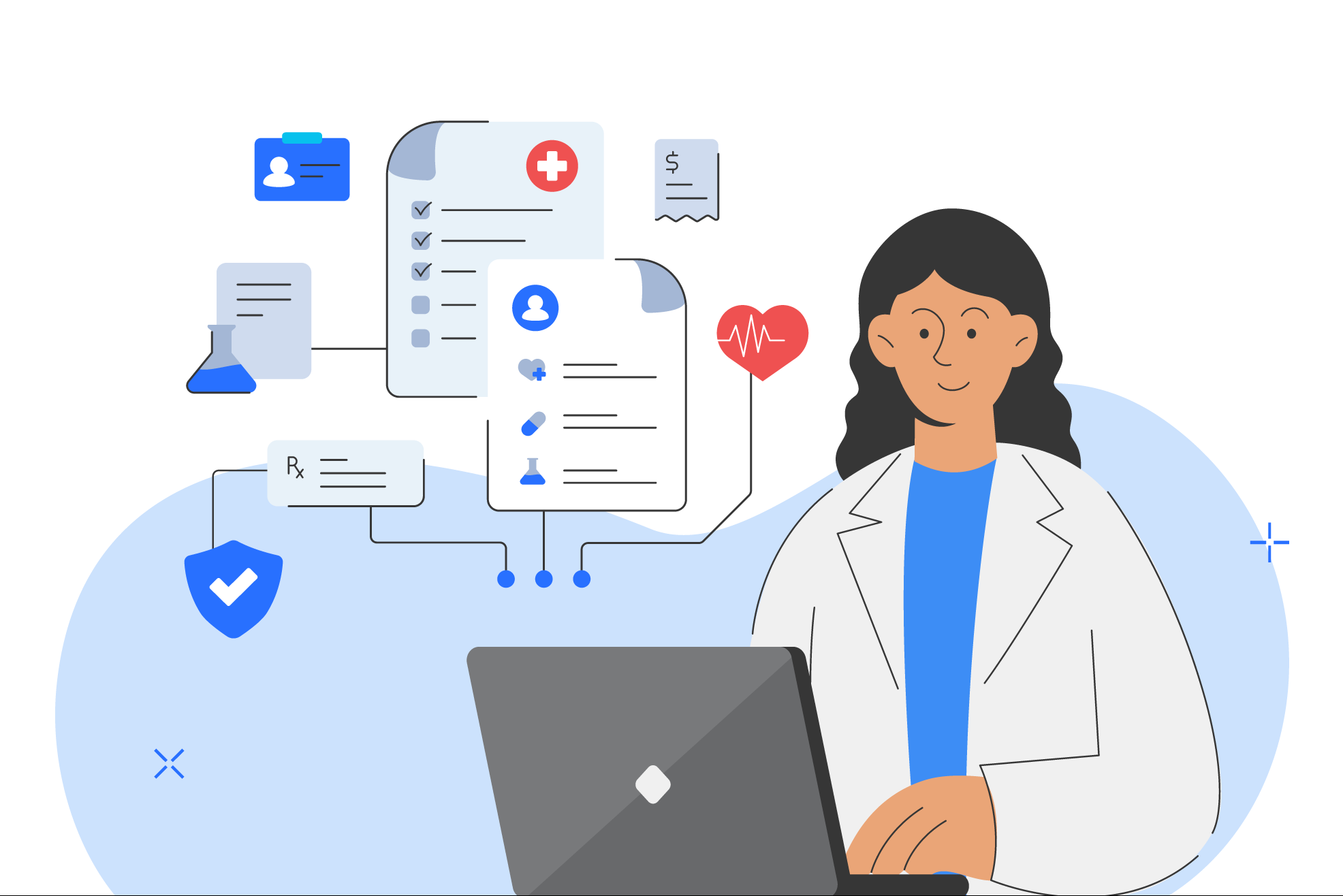AI Voice Recognition in Healthcare: 5 Benefits

Speech recognition technology is changing the game for healthcare professionals in handling patient data and medical documentation.
This tool allows medical staff to speak their notes, which the software then transforms into written text, streamlining the documentation process.
It's a game-changer because it makes documenting care hands-free, boosts the precision of medical records, and uplifts the efficiency of healthcare delivery.
By incorporating speech recognition software into their workflow, healthcare workers can spend less time on paperwork and more time with their patients, leading to enhanced care quality and a smoother operational flow.
More precisely, voice recognition technology has 5 benefits:
5 Benefits of Voice Recognition Technology
Increased Documentation Efficiency
One of the standout advantages of integrating speech recognition technology is the substantial boost in documentation efficiency.
Healthcare providers can now use voice commands to dictate notes, significantly cutting down on the time traditionally spent typing and handling paperwork.
This shift towards voice-to-text functionality allows for quicker and more efficient record-keeping, enabling medical staff to allocate more time to direct patient care and less to administrative tasks.
Enhanced Accuracy in Patient Records
Accuracy in patient documentation is non-negotiable. Speech recognition technology, equipped with automatic speech recognition capabilities, excels in transcribing medical terminology with precision.
This minimizes errors and ensures that patient records accurately reflect the care provided, enhancing the reliability of medical records and facilitating better patient outcomes.
Improved Accessibility of Medical Records
The accessibility of medical records sees a notable improvement with the adoption of speech recognition technology.
Through simple voice commands, physicians and staff can swiftly access and update patient information.
This improvement in accessibility makes the care delivery process more fluid and responsive, ensuring that patient needs are met promptly and efficiently.
Cost Reduction
Adopting speech recognition technology leads to significant cost savings for healthcare facilities.
By streamlining documentation processes and minimizing the need for manual data entry, the technology reduces operational costs.
Additionally, the decreased reliance on extensive administrative staff for record-keeping purposes further cuts down on expenses, making it a cost-effective solution for healthcare providers.
Higher Satisfaction among Healthcare Providers
Finally, the ease and efficiency brought about by speech recognition technology contribute to higher satisfaction levels among healthcare providers. With voice assistants and speech-to-text capabilities making documentation tasks simpler and quicker, healthcare professionals can focus more on what matters most—patient care. This not only enhances their work experience but also plays a crucial role in reducing burnout, a common issue in the healthcare sector.
Quadrant Health’s industry-leading AI medical scribe transcribes encounters in real time making documentation more accurate and efficient.
Frequently Asked Questions
How accurate is speech recognition technology in medical documentation?
Speech recognition technology, powered by artificial intelligence and natural language processing, has become increasingly accurate in medical settings.
With advancements in voice recognition software, it now boasts up to 99% accuracy in transcribing spoken words into text.
This high level of precision ensures that medical documents reflect an accurate account of patient care, even in environments with considerable background noise.
Can speech recognition technology understand different accents and dialects?
Yes, modern speech recognition systems are designed to comprehend a wide range of accents and dialects.
This inclusivity is achieved through sophisticated algorithms and a vast speech sample database, which allow the technology to adapt to variations in speech.
As a result, healthcare professionals who speak multiple languages or have unique accents can rely on this technology for accurate documentation.
What are the privacy implications of using speech recognition technology in healthcare?
Privacy is a paramount concern when integrating speech recognition technology in healthcare.
While this technology streamlines documentation and enhances efficiency, it also raises questions about the security of sensitive patient information.
Healthcare providers must ensure that these systems comply with privacy regulations and employ robust security measures to protect patient data from unauthorized access.
Implementing encryption and strict access controls are crucial steps in safeguarding patient privacy.

